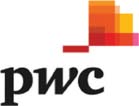The Plastic Packaging Tax – are you ready?
Michael McNeill takes a break from VAT this month to explain what businesses need to do to prepare for the brand-new indirect tax on plastic packaging being introduced in the UK.

A brand-new tax on plastic packaging will be introduced in the UK with effect from 1 April 2022. The aim of the tax is to incentivise the use of recycled material in the production of plastic packaging.
The draft primary legislation (which was introduced in the Finance Act 2021) provides that the tax will apply at a rate of £200/tonne on plastic packaging with less than 30 percent recycled plastic manufactured or imported into the UK (including packaging on goods which are imported).
The tax will affect a very wide range of businesses due to its broad scope. Crucially, registration for plastic packaging tax (PPT) will be required even if a business meets the 30 percent recycled content threshold and does not need to pay any tax. Impacted businesses therefore need to be aware of, and start preparing to meet, their compliance obligations well in advance of 1 April 2022 and many are already doing so.
Who will be liable to pay UK PPT?
Any business that imports into the UK, or manufactures in the UK, plastic packaging or products contained in plastic packaging will be liable to register for PPT and pay any tax due if they exceed the threshold of 10 tonnes of plastic packaging per annum. Credits will be available for exported packaging, including on packaged goods.
This will affect the majority of companies in the sectors such as packaging manufacturing, consumer goods including online retail, pharmaceutical and food and drinks, amongst others.
What is the scope of UK PPT?
The scope of UK PPT is particularly broad and will apply to finished, filled or unfilled, plastic packaging components with less than 30 percent recycled plastic.
For mixed material components, a component is considered a plastic packaging component if it contains more plastic by weight than any other material. A plastic packaging component will be considered to be ‘finished’ if it has undergone its last substantial modification.
PPT will not be payable if the manufactured or imported goods or packaging:
- does not meet the 10-tonne minimum threshold;
- contains 30 percent or more recycled plastic content;
- is made of multiple materials of which plastic is not proportionately the heaviest when measured by weight;
- is an immediate packaging of licensed human medicines; or
- is going to be exported out of the UK within a year.
What are the compliance obligations?
There are registration, record-keeping, evidence and sampling requirements. Businesses need to ensure they have adequate evidence to defend their filings including adequate supply chain due diligence, even where no tax is due, and effective sampling procedures where appropriate.
Supply chain due diligence and detailed evidence of recycled content will be required to defend and support the tax decisions for components that contain more than 30 percent recycled content. This is required at a component-by-component basis at production run level, even for imported goods.
There are also invoicing requirements where taxable plastic packaging components are supplied to a business customer by the person who paid the tax. This includes the sale of packaged goods where the person making the sale was the one who paid the tax on the packaging. Therefore, systems and controls may need to be adapted accordingly and it takes time to do.
What do I need to do?
The PPT will create a need for systems and processes to collate data for compliance, pricing, contracts, and supply chains. These things take time to deal with, which means that businesses need to start planning now for their strategy for dealing and complying with the tax.
In our experience, many businesses are already considering their packaging strategy, but often that doesn’t involve all the business stakeholders or the data points needed for compliance with the new proposed taxes. Key business stakeholders should also be involved in the conversation in order for effective systems to be implemented.
Critical actions that businesses should be considering now include:
- assess the likely impact of PPT on your business;
- assess supply chains to determine which are affected, who is the responsible party, and any required amendment(s) to contracts and pricing;
- interact with customers and suppliers;
- review existing data and reporting capabilities to assess any gap that needs to be addressed in order to comply with the PPT compliance obligations;
- design systems and assign roles and responsibilities for meeting PPT compliance obligations; and
- implement required changes to systems to enable necessary data collection, reporting and invoicing requirements to be met.

